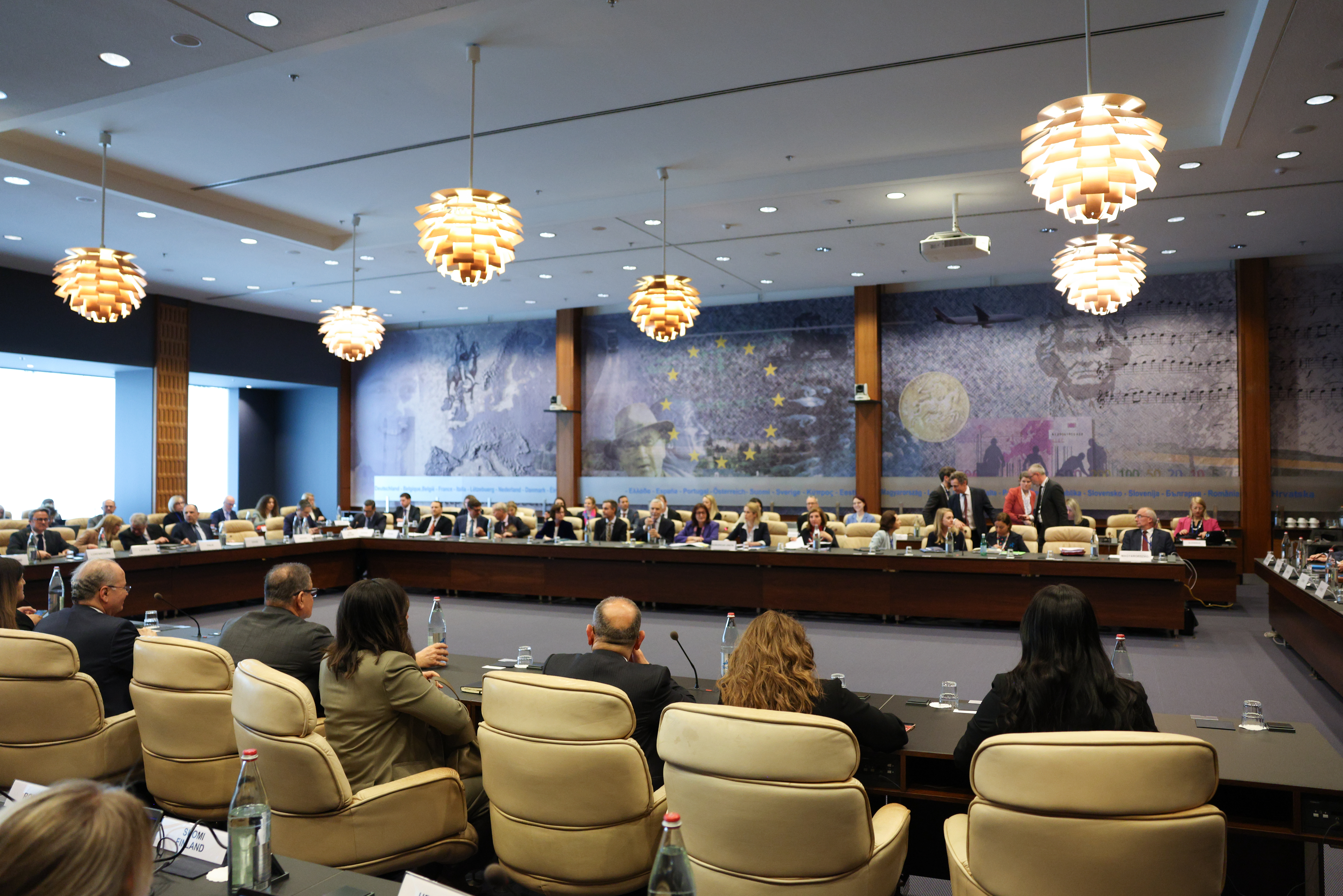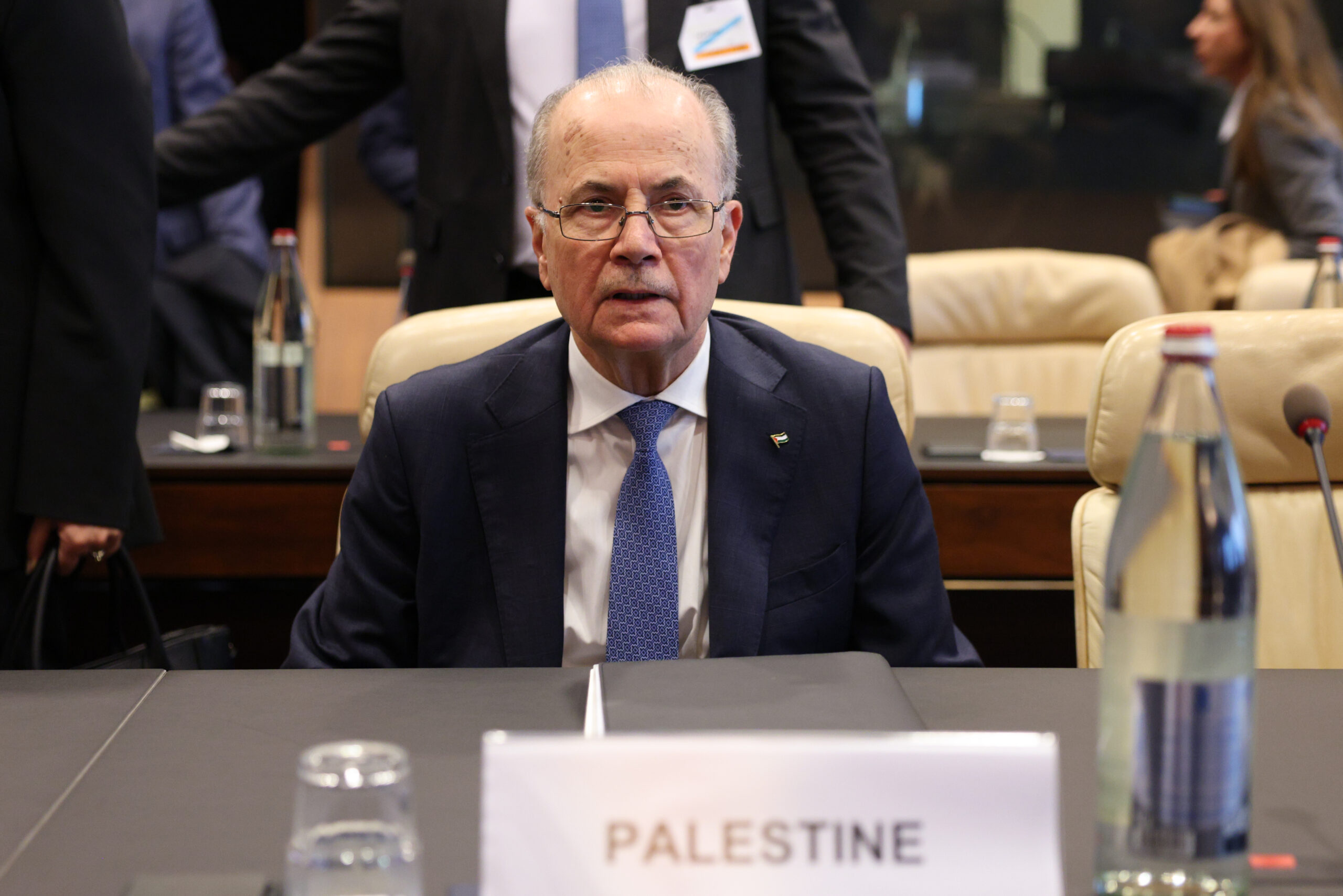Brussels – With a maxi package worth up to €1.6 billion to the Palestinian Authority, the European Union “reaffirms its unwavering support for the Palestinian people and its commitment to a lasting and sustainable peace based on the two-state solution.” In the first high-level EU-Palestinian dialogue, the Union sends a strong signal to PM Mohammad Mustafa. But it simultaneously misses another opportunity to take a longer, more incisive step. Along with economic support, Ramallah needs political recognition. And while already 150 countries worldwide recognise the State of Palestine, there are still 15 défaillance among the 27 EU countries.
The support program put on the table by the EU High Representative for Foreign Affairs, Kaja Kallas, is designed to accompany the Palestinian Authority in a series of reforms while addressing the most urgent needs of the West Bank population. It is a three-year program until 2027, structured on three pillars: support for services for the population, support for the recovery and stabilization of the West Bank and Gaza, and support for the private sector. “This will strengthen the capacity of the Palestinian Authority to meet the needs of the Palestinian people in the West Bank and prepare it to return to governing Gaza as soon as conditions allow,” the EU diplomacy chief said.
The largest part consists of €620 million in grants for direct budgetary assistance to the Palestinian Authority, which will provide oxygen to the public administration and ensure that Ramallah can continue to provide services to the population. The “bulk” of the disbursements, the European Commission memo says, “will be linked to the Palestinian Authority’s progress on key reforms in the areas of fiscal sustainability, democratic governance, private sector development and infrastructure and public services.”

The second pillar provides €576 million in grants to support projects on the ground—mainly for energy and water infrastructure—to promote economic recovery in the West Bank, East Jerusalem, and Gaza. In the latter, “as soon as the situation on the ground permits.” The Commission also included in this expenditure chapter the allocation of 82 million a year to the United Nations Relief and Works Agency for Palestine Refugees (UNRWA). Finally, the European Investment Bank (EIB), whose President Nadia Calviño is present today at the summit with EU foreign ministers and the Palestinian premier, is committed to financing the Palestinian private sector with loans of up to €400 million.
According to the European Commission’s strategy, agreed with the Palestinian Authority in a letter of intent signed last July, this multi-year program will contribute “to the building of a sustainable state in all Palestinian territories.” From this follows the idea that the State of Palestine will be postponed in time until Ramallah demonstrates that it can provide a solid scaffolding to govern its territories.
Conversely, in order of time, Spain, Slovenia, and Ireland were the last three EU countries to want to send a strong political message in support of the Palestinian Authority. They joined Bulgaria, Cyprus, Malta, Poland, Czech Republic, Romania, Slovakia, Sweden, and Hungary, which had already recognized Palestine according to the 1967 borders (West Bank, Gaza Strip, and East Jerusalem). To do so, the EU would first need formal recognition from everyone else. But the issue has never been put on the agenda at EU Council meetings.

The Prime Minister of the Palestinian Authority, Mohammad Mustafa, at the high-level EU-Palestine dialogue, 14/04/25
The European Commission puts it in writing: the EU-Palestine wording “should not be interpreted as recognition of a State of Palestine and does not prejudge the individual positions of member states on this issue.” Brussels untangles itself from the thorny issue, brought back into the debate just a week ago by Emmanuel Macron’s announcement, who said, on a visit to Egypt, that France could finally recognise the Palestinian state by the summer.
The point is that economic assistance and diplomatic support for Ramallah are not enough to promote the two-state solution. There is a need, precisely, for two states. Because otherwise, constant Israeli aggression against Palestinian communities and Tel Aviv’s territorial claims will never amount to violations of statehood. The paradox is that the EU, as outlined by the European Commission, continues to be “the largest provider of external assistance to the Palestinians,” with a resource allocation of about €1.36 billion for the three-year period 2021–2024, which will now be increased. But at the same time, of the 50 or so countries around the world that still do not recognize Palestine as a state, 15 are precisely EU member states.
English version by the Translation Service of Withub









